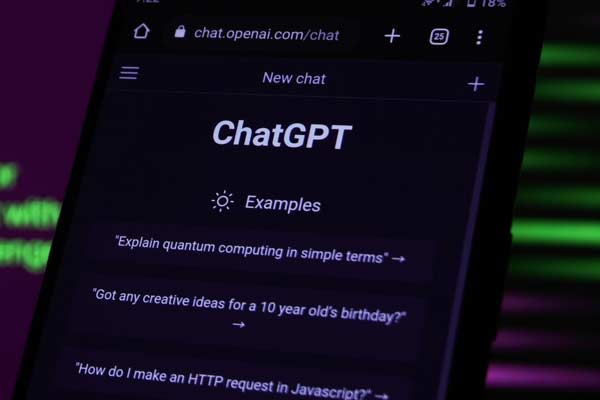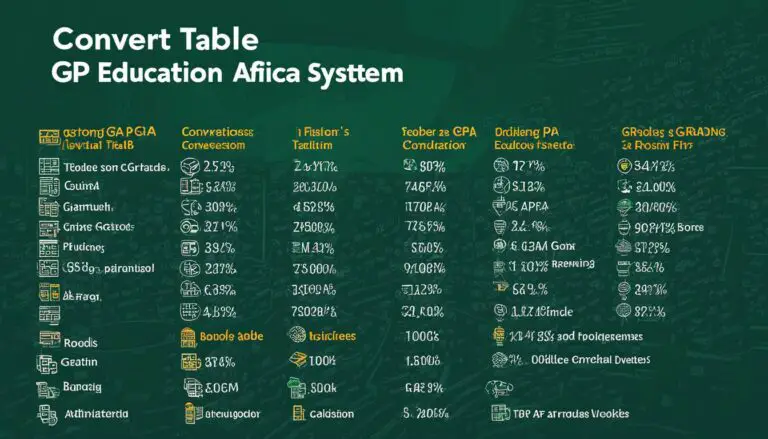Is Chat GPT Good for Students? A Comprehensive Analysis
ChatGPT, developed by OpenAI, is a popular AI language model among students. While some argue it is a valuable tool for helping students with their writing assignments, others believe it is cheating.
The question of whether Chat GPT is good for students is a complex one that requires a careful examination of its pros and cons.
One of the advantages of Chat GPT is that it can help students save time and effort when writing essays and other academic papers.
The AI language model can generate coherent and grammatically correct sentences, making it easier for students to express their ideas in writing.
ChatGPT offers students immediate feedback on their writing, allowing them to spot and rectify errors before submitting to their teachers.
However, some critics argue that using Chat GPT is unethical and can lead to academic dishonesty. They argue that relying on an AI language model to do the work for them undermines the learning process and does not allow students to develop their writing skills.
There’s a concern that students might use Chat GPT to copy content, leading to severe outcomes like course failure or expulsion.
ChatGPT in Education
ChatGPT is a popular AI chatbot in education, transforming how students engage with tech.
Role in Classroom
ChatGPT is a tool that complements traditional teaching, offering personalized learning for students. ChatGPT can help in the following ways:
- Answering questions: ChatGPT can answer questions that students may have during class. This can help students understand the concepts better and clarify any doubts.
- Providing feedback: ChatGPT can give instant feedback to students on their work. This can help students identify their mistakes and improve their performance.
- Customizing learning: ChatGPT can be programmed to cater to students’ individual needs. This can help students learn at their own pace and in a way that suits their learning style.
- Engaging students: ChatGPT can help make classroom learning interactive and fun through activities and games.
Impact on Homework and Assignments
ChatGPT assists students with homework by:
- Generating ideas: ChatGPT can generate ideas for written assignments. This can help students overcome writer’s block and develop unique and creative ideas.
- Proofreading: ChatGPT can be used to proofread written assignments. It can identify grammatical errors and suggest corrections.
- Research: ChatGPT can be used to research topics for assignments. It can provide students with relevant and reliable information on a topic.
- Time management: ChatGPT can help students manage their time better. It can provide reminders for assignment deadlines and help students prioritize their tasks.
Advantages of ChatGPT for Students
ChatGPT is an AI language model that can help students in various ways. Here are some advantages of using ChatGPT for students:
🌟 Hey Students! 🚀 Ready for the ultimate experience? Join us on Studentsinside.com's Facebook, YouTube, WhatsApp, and LinkedIn. Click now for tips, fun, and success vibes! 🌈✨ #StudentLife #JoinUs
Promoting Critical Thinking
One of the advantages of ChatGPT is that it can promote critical thinking among students. When students use ChatGPT to generate ideas for their assignments, they must evaluate the quality and relevance of the generated ideas. This method enhances students’ critical thinking by teaching them to assess various ideas and arguments.
Enhancing Creativity
Another advantage of ChatGPT is that it can enhance creativity among students. ChatGPT can produce diverse ideas, aiding students in brainstorming innovative concepts for their tasks.
This can help students develop their creativity and imagination, which can be helpful in various fields.
Boosting Motivation
ChatGPT can also boost motivation among students. Students can get instant feedback and suggestions When they use ChatGPT to generate ideas for their assignments. Receiving immediate feedback can keep students motivated and engaged, enhancing their learning experience.
Potential Challenges and Concerns
Issues of Plagiarism
One of the main concerns with Chat GPT is the potential for plagiarism. As the AI language model can generate human-like responses, there is a risk that students could use it to produce work that is not their own. This could lead to academic dishonesty and undermine the integrity of the educational system.
Teachers may need more time checking for AI plagiarism to combat this issue, which could increase their workload.
Developing new strategies for detecting and preventing cheating may also be necessary, such as using plagiarism detection software or implementing stricter rules and consequences for academic dishonesty.
Risk of Cheating
In addition to plagiarism, there is also a risk that students could use Chat GPT to cheat on exams or assignments.
As the AI language model can generate responses quickly and accurately, students may be tempted to use it to find answers or complete tasks without putting in the necessary effort.
To address this concern, teachers may need to monitor students more closely during exams and assignments and implement measures to prevent cheating, such as proctoring software or limiting access to specific websites and tools.
ChatGPT as an AI Tool
ChatGPT is an AI chatbot that helps students by answering questions and assisting with various topics using machine learning.
Accuracy and Trust
Accurate and trust are among the most essential factors when using any AI tool. ChatGPT has been trained on a large dataset of texts, which allows it to provide accurate and reliable information.
However, it is essential to note that ChatGPT could be better and may make mistakes. Therefore, it is crucial to verify the information provided by ChatGPT before using it.
To ensure accuracy and trust, ChatGPT has been designed with several features that help to prevent misinformation. For example, it can detect and correct grammatical errors, and it can also recognize and correct factual errors.
Natural Language Processing Capabilities
ChatGPT can process and answer questions using natural language, making it easy for students to interact and get responses in their own words.
ChatGPT’s natural language processing capabilities are made possible by using machine learning algorithms. These algorithms allow ChatGPT to learn from the given data and improve its performance over time.
ChatGPT’s responses will become more accurate and reliable as it is used more often.
Role of ChatGPT in Test Preparation
Students preparing for tests like the ACT and SAT find ChatGPT beneficial for study assistance. It aids in test preparation. Additionally, it can help students with math and science problems, making it a valuable resource for students in STEM fields.
Preparation for ACT and SAT
The ACT and SAT are standardized tests required for admission to many colleges and universities in the United States.
ChatGPT can help students prepare for these tests by providing practice questions, tips, and strategies. It can also help students identify areas where they need to improve and provide guidance on how to do so.
ChatGPT can give students sample questions from previous tests and explain the correct answers. This can help students get a better understanding of the types of questions that will be on the test and how to approach them.
Additionally, ChatGPT can provide tips on time management, test-taking strategies, and how to reduce test anxiety.
Assistance with Math and Science Problems
ChatGPT is a valuable tool for students seeking assistance with math and science questions. The chatbot can provide step-by-step solutions to problems in algebra, geometry, calculus, and other math subjects.
It can also provide explanations of scientific concepts and help with scientific problems. ChatGPT assists students by simplifying complex concepts into easier-to-understand segments.
Implications for the Future
Impact on School Districts
The introduction of ChatGPT has the potential to revolutionize how school districts approach writing instruction.
With the help of artificial intelligence, students can receive personalized feedback on their writing in real-time, allowing them to improve their skills faster. ‘
Additionally, teachers can use ChatGPT to assess student writing more efficiently, freeing up time to focus on other aspects of instruction.
However, some concerns have been raised about the potential for ChatGPT to perpetuate inequality in schools. Students who do not have access to the technology or who are not comfortable using it may need to catch up to their peers.
Furthermore, there is a risk that ChatGPT could be used to replace human teachers entirely, which could have negative consequences for students’ social and emotional development.
Influence on Society and Justice
The impact of ChatGPT on society and justice needs to be clarified. On the one hand, technology can make legal writing and research more efficient and accurate.
Lawyers could use ChatGPT to draft legal documents and briefs more quickly, freeing up time for other tasks. Additionally, ChatGPT could analyze large amounts of legal data, uncovering patterns and insights that humans might miss.
On the other hand, there is a risk that ChatGPT could perpetuate biases and inequalities in the legal system. The technology is only as unbiased as the data it is trained on, and if that data is biased, then the output will be biased as well.
Furthermore, using ChatGPT in the legal system could exacerbate existing inequalities by favoring those with access to the technology and the resources to use it effectively.







